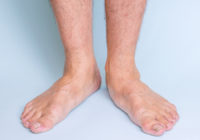No one is quite as flexible as they were when they were children, but it doesn’t mean it’s all downhill from there. Becoming less flexible as you get older might seem like an inevitable outcome of aging. It doesn’t have to be that way. Your West Vancouver Chiropractor has some tips for you. Read on!
Multiple studies into aging and flexibility state that inflexibility is caused by general inactivity rather than some underlying cause. Your body doesn’t get less flexible because you’re older – there are many contributing factors.
There’s no doubt that muscles, bones, and joints become harder to look after as you get older, but with the right exercise, healthy lifestyle habits, and the proper care and attention, there’s no reason why you should see those toes getting further away when you try to reach for them.
Flexibility and Aging
There are several different conditions that might cause the body to become more inflexible. Some of these conditions are osteoarthritis or osteoporosis, which can, in turn, lead to weakness in various muscles and joints. Being inflexible due to the inability to move a joint or joints is not the same as inflexibility because of shortened muscles, tendons, and ligaments.
While these might be viewed as the inevitable outcome of getting older, there is nothing to suggest that these conditions are related strictly to the aging body. Flexibility is something that is earned, and you just might have to work harder (or smarter) as your body gets older.
Take osteoarthritis, for example – there’s no doubt this form of arthritis is more common in the elderly, although not every older person suffers from it. The key is to take notice of your body before the symptoms become much worse. Taking action right away can help stem off feelings of inflexibility and discomfort in the future.
Your Muscles, Joints, and Bones
We’ve already mentioned arthritis as a condition that can cause inflexibility, but there are also some other conditions that might affect your muscles, joints, and bones as well.
As the body ages, muscles generally become weaker, as soft tissue breaks down and is replaced with a tougher fibrous tissue – directly linked to a lack of flexibility in the arms or legs. Changes in the central nervous system mean muscles sometimes shrink or contract in different ways. Falls and minor trauma over the course of your life thus far will also add tought fibrous scar tissue to those muscles, tendons and ligaments. All these factors will cause inflexibility with age. You have to work on all these areas to maintain your flexibilty as you get older.
Likewise, your bones weaken over time, especially if you’re not taking care of them. It doesn’t have to be as apparent as a condition like osteomalacia (the condition resulting in soft bones) for your bones to hinder your movement as you age.
Lastly, don’t forget the joints in between your bones. These joints are absolutely crucial to the movement of pretty much every part of the body, from your fingers to your neck. Joints are cushioned with cartilage and fluid, which helps the healthy movement of the joint. As the body ages and with a lack of activity or movement, the body struggles to produce as much fluid as the joints need to stay flexible.
What Can You Do To Stay Flexible As You Get Older?
Despite all this general wear and tear of the body as it ages, getting older shouldn’t be the end of feeling like you can’t run up and down the stairs or feeling stiff and sore in the mornings when you get out of bed.
Our Chiropractor in West Vancouver has helped many people get back to pain-free movement and improving their flexibility. Dr. Andrew Chin starts first by diagnosing the specifics of their condition. No two bodies are the same. One exercise might work well for one person but be a struggle for another.
Maintaining flexibility as you get older is all about staying on top of healthy habits and getting plenty of exercise. This doesn’t mean you need to be in the gym or climbing mountains – many of the problems above can be kept at bay with just casual movement. Yoga and daily stretches do more for you then you might think. It’s not as sexy as running a marathon or doing the Grand Fondo bike race, but it will keep you staying flexible and pain-free. This low impact activity will then allow you to do high impact sports and with fewer injuries. So the main point here is to stay active but not overdo activities that your body is not ready for yet.
Seek Chiropractic Care at Ambleside Chiropractic in West Vancouver If You’re Struggling
The truth is, there’s quite a lot that don’t work as well with the body as you get older. A body is made up of dozens upon dozens of moving parts, all interacting with each other. More moving parts means more wear and tear over time. The trick is to recognize your limitations as it happens and work on ways to improve and prevent injuries from even happening. You can work on over coming those limitations by getting back to the basics – Flexibility first!
One slight pain in the back can have many knock-on effects, such as impacting the nervous system, the way you walk, or the joints in your hips and knees. Most people don’t think of specific body aches and pains as affecting other parts of the body. However, our Chiropractor in West Vancouver, Dr. Andrew Chin, is trained to look beyond the point of pain. Not only will he treat the problem area, but he will also deduce the cause and effect and help you prevent it from recurring again. Almost all his patients leave with specific stretches and exercises to do.
As a Chiropractor, it is not only our job to diagnose the problem area, but to also help you find other ways to heal and improve the injured area. This help could be suggestions to include other modalities like massages, physical therapies, or a recommendation of lifestyle changes.
Exercise, your diet, getting plenty of sleep…the list of factors that contribute to a healthy body as you get older only get longer as you age. However, even with a few simple stretches a day, you will start to feel a huge difference and will definitely notice an increase in flexibility as you get older.



